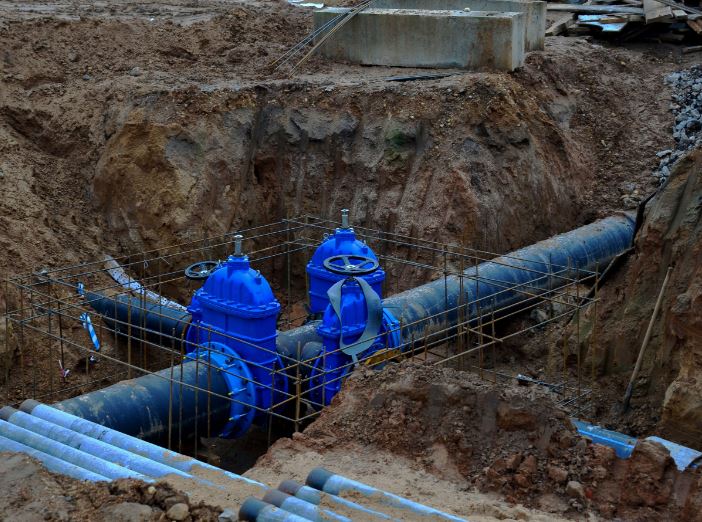What You Should Know About the Different Types of Drainage Systems
The typical drainage system works on removing water from both surface and subsurface areas. There are two main types of drainage: natural and artificial. The first is usually found in such locations as farmlands, where excess water naturally flows toward rivers, lakes, and other similar bodies. However, in some cases, natural drainage is not sufficient due to man-made structures that obstruct the free flow of water.
To address this issue, a second type of drainage system was developed. Artificial drainage is typically part of a more extensive network of pipes installed in various private and public properties. It collects rainwater, sewage, and other liquid waste, channeling them to a designated disposal point. Artificial drainage systems also help prevent harmful gasses from septic tanks and sewers from reaching residential areas.
Types of Residential Drainage Systems
When it comes to residential homes, a functioning drainage is essential for effectively diverting excess water away and in protecting properties from water damage, mold, and rot.
Here are the common types of residential drainage systems:
- Surface Drainage
As its name implies, surface drainage systems focus on removing water from the surface of your property. To build this type of home drainage, shallow ditches or open drains are typically dug and arranged in parallel patterns. These act as channels to redirect water flow toward the main drain.
Surface drainage is usually recommended for houses built on flat lands and is suitable for driveways and walkways. The ground surface can sometimes be shaped or graded to slope towards the ditches or open drains.
- Subsurface Drainage
Subsurface drainage systems, also known as French drains, are designed to remove excess water from the soil at the root level. These drains are normally installed below the top layer of the soil. It’s essential that caution is observed when creating a subsurface drainage because it can cause waterlogs for trees and other plants, which can lead to root rotting.
- Slop Drainage
Slope drainage involves the use of pipes that are not buried underground. Instead, they are placed on a gentle slope or incline, allowing water to move naturally away from the house. The pipes to be used can be sourced from various materials, including plastic, steel, or concrete. To ensure safety, the drainage is often coated with a protective layer to prevent cases of accidental falls.
- Downspouts and Gutters
A plumber in Denver explained that the gutter and downspout system is considered as the primary defense against excess storm water for any home. The two components have to work together closely, and because of this, careful installation planning is required so your downspouts and gutters will function properly.
Gutters remove water from the roof, while downspouts collect and direct it away from the source, ultimately guiding it to the ground. For the latter, it’s common practice to create slopes below it to prevent water from pooling at the base. From there, the water should flow towards the streets and find its way to public drainage lines.
Benefits of Residential Drainage Systems
Although the initial cost of installing a home drainage system may seem significant, the long-term benefits far outweigh the investment.
Here are the advantages you can enjoy when you have a working drainage at home:
- Prevention of Water Buildup
A properly functioning drainage system allows water to flow freely, preventing unnecessary accumulation and the emergence of puddles. These can become breeding grounds for mosquitoes and other disease-carrying insects. Additionally, a home drainage reduces the likelihood of flooding, providing you with peace of mind, especially during storms or heavy rainfall.
- Prevention of Soil Erosion
Water buildup can lead to soil disintegration and subsequent erosion. By regulating moisture levels, a home drainage system designed and installed with the help of residential drainage services can safeguard against muddy surfaces and the movement or collapse of topsoil in your garden. It also helps maintain the stability and integrity of your outdoor areas.
- Promotion of Healthy Living
A well-maintained home drainage minimizes the occurrence of blocked pipes caused by sediment and waste accumulation. It can also reduce the growth of harmful bacteria that can cause diseases and health issues. By ensuring proper drainage movement, you get to create a healthier living environment for you and your family.
- Increase in Resale Value
An effective home drainage system prevents dampness, mold growth, and foundation problems. When the overall condition of your house and its contents is good, it can lead to an increased resale value. When the time comes for you to sell the house, you can set a reasonable price, and attract a lot of potential buyers.
Conclusion
Learning about the different types of drainage systems should allow you to understand how they remove water from your home and guide it to where it should go. Simply put, when water is removed quickly from places where it can produce a pool, the better it will be for everyone concerned.
Unfortunately, many homeowners forget just how vital a drainage system can be, especially when it comes to keeping their properties safe. It can be quite effective in keeping floodwaters away while ensuring that water in your home is preserved and not wasted unnecessarily. Thus, it’s important that you ensure that your drainage system is working, and if it’s experiencing issues, then you should contact professional drain cleaners right away.




